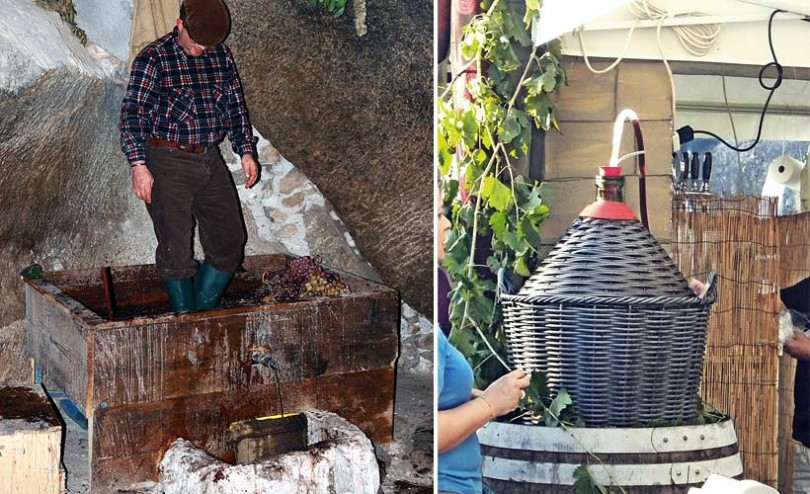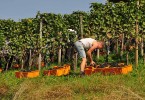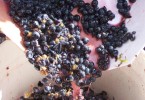Problems of home made wine, is it genuine?
Sometimes it happens to hear elder people talking about the custom of homemade wine. The vineyards that surrounded ancient farmhouses were amazing. The farmers pick the grapes in the perfect period for the grape harvest. It was a cheerful atmosphere that involved owners and peasants. Girls trod the grapes with the feet and the children run joyful.
Besides the special event, it is necessary to take into account that the rules of production were often ignored. No care for the hygienical conditions and the term genuine was connected to the lack of treatment for the perfect stabilization of the wine. The knowledge passed down from father to son and they look with suspicion any kind of substance that could be added.
Pay attention to the grape used for the homemade wine
In the last years, homemade wine was a kind of fashion with the aim to personalize a product to taste, together with friends and relatives, in special occasions or during the days. If you don’t have a vineyard the grape can be purchased by a peasant and produced at home with suitable tools.
The first problem is to find grapes matured during different times: unripe grapes together with too ripe grapes. This won’t happen in a winery because they carry out continuous analysis in the period just before the grape harvest on a sample of the whole vineyard. Ripe grapes create wines with a low alcoholic volume. The presence of the right quantity of alcohol allows to preserve the wine against the attack of ill-bearer bacteria, as for instance the so-called “fioretta”.
Yeasts as Candida and Pichia attack the alcohol to transform it in water and carbon dioxide. On the other side, if the grapes are too ripe, mould could affect them easily causing oxidation. In fact, the oxidation makes the wine darker and iridescence in the surface. Wine will have a taste like cooked and oxidized.
Delicate white wine, difficulties of make it at home
White wines are pretty delicate. The working process has to be strictly checked due to the fact that the wine has to be always clear. The oxidation is one of the main causes of darkening. The colour of the wine has an intense yellow colour; to obtain a straw yellow colour it is necessary to clear it up through casein and bentonite, followed by filtering.
The most important thing is to limit its contact with oxygen. The temperature and the hygiene play an important role. Wineries are able to manage the problem thanks to tanks and insulated fermenters, where the temperature is kept around at 18-22°C. At home, it is difficult to realize such conditions and thus there’s the risk to produce a darken wine with low organoleptic qualities.
Homemade red wine: joy and pain
Make wine at home is a great reason of satisfaction for the guests. In the red wines, a bright ruby red wine is compulsory, good notes and absence of flaws. The problems that you can find are anomalies in the colour. It depends on the time that is came in contact with the peels. Usually it macerates for 10/15 days. Going on beyond the suggested limit, it gives notes of dregs. The same thing, if the pouring is not carefully managed.
The places where the working process takes place, as well as the tools have to be in compliance with the strict hygienic rules. At home, in fact, to obtain a genuine wine, the pasteurization doesn’t take place. Thus its perfect preservation has to be preserved. A first pouring happens after the draining, the second at the beginning of winter and the third during spring. Clear and dry days favour the operation. On the contrary, windy and humid days could cause the spreading of the gas contained in the wine, with the consequent darkening of the product.
Fonti Immagini: wikimedia.org







